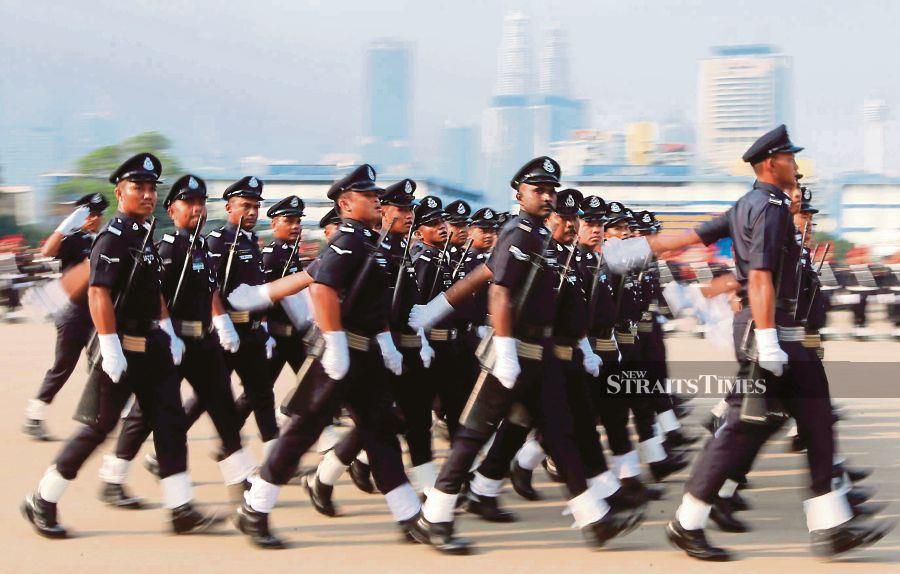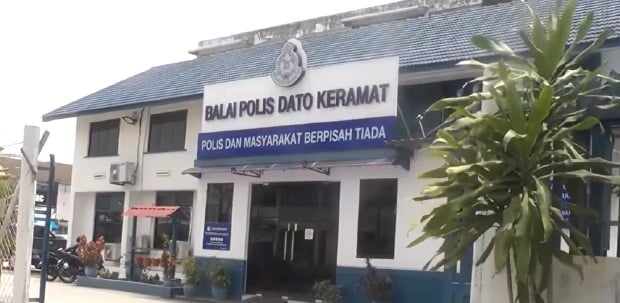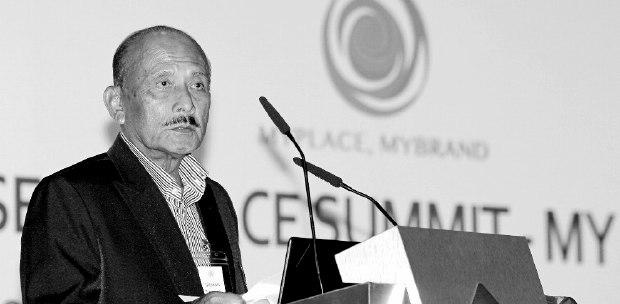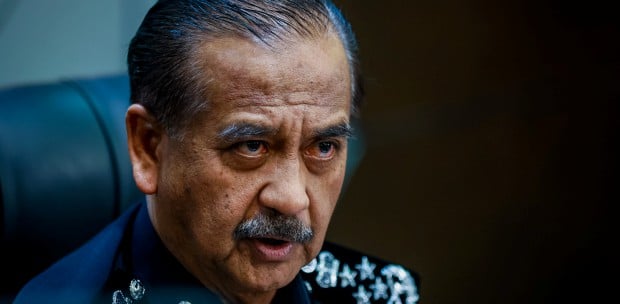KUALA LUMPUR: Inspector-General of Police (IGP) Datuk Seri Abdul Hamid Bador, who took office on May 3, has set his sights on restoring the "tainted image" of the police.
Here, in an exclusive interview with the New Straits Times, he shares his conviction that the setting up of the Independent Police Complaints and Misconduct Commission (IPCMC) will not only ensure the welfare of his men, but also stamp out the culture of corruption in the force.
Question: How do you see the police force benefiting from the IPCMC and will it be beneficial to the police force?
Answer: I am for the IPCMC. It is lucky that I have that 60 years of experience in the police because I was born in the police barracks. My father was a policeman. I’ve lived among the rank-and-file, their sons and families.
Now, I am in my 37th year in the force. I think I have gained a lot of experience from there. I sincerely believe IPCMC is very good for the police. It has been proven that the setting up of such a commission in many advanced countries — Australia, the United Kingdom, New Zealand and Hong Kong, for that matter — has brought a lot of good things for the policemen. I don’t bear any malice towards anyone when I say that I am for the IPCMC. It will benefit not only the policemen, but also the country.
Q: Are you privy to the details that are being drawn up for IPCMC?
A: Yes I am, especially the major points that are feared most by critics in the past, especially about having no right to appeal. I’ve made it clear so many times. I’ve spoken to (Governance, Integrity and Anti-Corruption Centre director-general) Tan Sri Abu Kassim (Mohamed). He’s not only a very respected senior government officer, but also a personal friend. And we have talked so many times in the past. I know he means well for the police. He has no evil intent nor does he want to teach the police a lesson. He has a lot of good things for the police in mind. I believe in him and trust him.
Q: Once IPCMC comes into force, will JIPS (the Federal Police Integrity and Standard Compliance Department) still exist?
A: Yes, JIPS will continue to be a very important department in the force. They have been empowered to act. So there’ll be more bite. I think (JIPS director Commissioner) Datuk Zamri Yahya has been performing excellently. He is a good, very clean officer. I believe JIPS will excel under him.
Q: You had wanted his position in the past?
A: I wanted it to buy time before reaching the mandatory retirement age. But sadly, I was kicked out of the police.
Q: A few years ago, we ran a report, which was not disputed by (the then inspector-general of police) Tan Sri Khalid Abu Bakar, that 80 per cent of those manning our borders are corrupt. Is this a concern?
A: Yes, it’s a big concern. That’s why during my first days as the IGP, in my meetings with my officers, commanders and directors, I emphasised enhancing integrity across the board — in all departments within the police. I’m not focusing on only one or two (departments). People say the CID (Criminal Investigations Department) is the most corrupt. No. It’s across the board... that’s how bad it is. I am not shy.
As I’ve told my men, we don’t be ashamed because when the people say the police are corrupt, it’s a fact.
It is up to us, the present leaders, to correct things. It’s so easy for contrabands to cross into Malaysia, not only from the Thailand-Malaysia border, but also Tawau and Kalimantan or the Straits of Malacca, where we can see speedboats bringing in migrants.
The most important thing is correcting things with a new spirit. Once IPCMC is set up, things will move. The police will get what they deserve from the government. Once they are equipped with the right resources and their welfare is taken care of, there will be no more excuse for them to object to IPCMC. I can see a lot of positive things ahead.
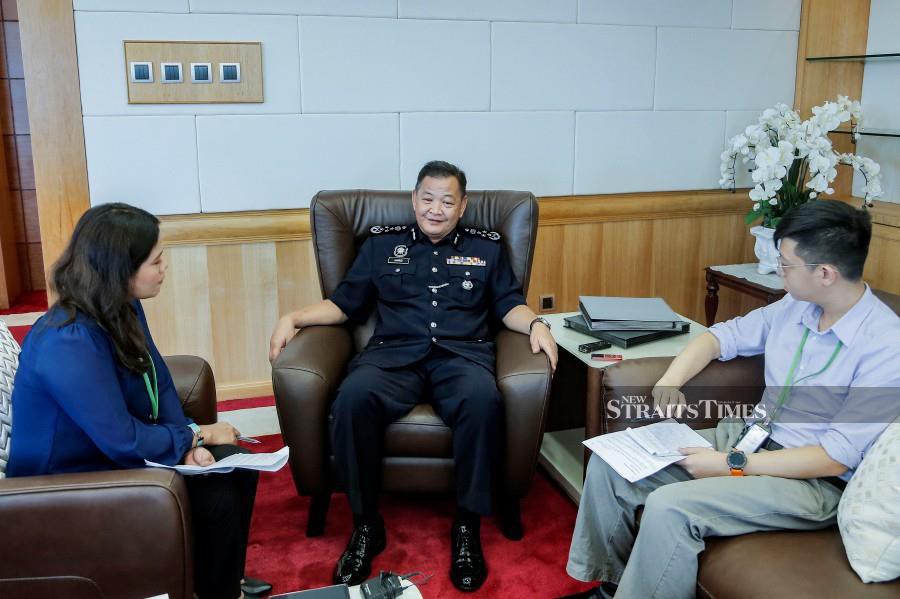
Q: You have been making your rounds and hearing feedback on the performance of the police. How would you rate the force that you now lead?
A: I sincerely believe the men have surpassed their 50 per cent mark where performance is concerned, but I am not satisfied as I believe they can deliver and perform better. They have the spirit, means and resources to do it. There is a lot of room for improvement.
Q: Your vision for the force.
A: It’s simple. That my men have integrity in carrying out their duties. Once integrity is improved, many problems with policing will be solved. What bogged down the police all this time was integrity.
But I believe many men in the force are clean, want to perform, have the spirit to undertake responsibilities, but faced a lot of hindrance.
I understand the very negative public perception towards the police and I concur. I want to improve the image of the police by encouraging my men to toe the line and fulfil public expectations of the public.
Q: Are you happy with your current line-up? Do your directors have key performance indicators or is the post theirs to keep regardless of performance?
A: My approach is always “bersangka baik”. As IGP, I’m neither malicious nor vindictive. There is no squaring off with, for instance, those who were propping up the former IGP.
I have my mission and vision. I lay them down on the table: just toe the line and you will be safe. Forget the past. You are all my officers and not someone else’s proxies. It is not for me, it is for the country. It’s simple, there shouldn’t be any politics or factions in the police.
Q: You are on a two-year contract as IGP. Will you serve it out?
A: I don’t know. If I fail to do it or when I realise I’ve overstayed my welcome, I’ll decide to leave early. If things look good, the men are doing their job and the police’s image is improving, I will see my contract through.
Q: What is your response to critics who may not be so sure that you are wearing your badge without fear or favour, particularly because you were brought back in by Pakatan Harapan?
A: The good thing is the prime minister and home minister gave me a blank cheque to do what is allowed by the law without fear or favour, that there would be no interference.
The message that the prime minister conveyed to me was a specific directive to repair the damage done to the police’s image so that they earn the people’s respect again. That is what I’ve been doing. I’m free to carry out my duties according to the law.
There is an IGSO (Inspector-General Standing Orders) laid out by the previous IGPs to tackle certain matters. There may be a need for new input as time changes but, basically, I will go strictly according to the IGSO, which guides the actions of policemen on the ground.
The people deserve to have a clean police force, feel safe and able to rely on the police when it matters. Just like the world-class health services Malaysia is known for, I want the same for the police force. I don’t want the people to fear the police, criminals should fear us.
Q: Have you had a chance to talk to Putrajaya on better pay for your men?
A: I pleaded with Tun (Dr Mahathir Mohamad) and I think it has fallen on sympathetic ears. I hope and believe the prime minister will consider this in discussions for the next Budget. I am serious about this.
My findings on the ground are real. I understand the government’s constraints, but security doesn’t come cheap. In gated communities, if you pay a meagre sum monthly, you get a half-past six security company, but the better ones provide you with better services.
The government must spend and be fair to my men. With RM1,400 in the city to raise a family, how do they survive? You have to put yourself in their position to understand.
Q: When will the Special Branch chief post that you vacated be filled?
A: There were several names submitted to the prime minister and home minister. The decision on the Special Branch and Narcotics directors is expected to be announced soon.
Q: We have seen how in the past, police officers were disciplined internally in the event of wrongdoings, and sometimes sent to the police college for “cold storage” when there are laws that deal with offences that may have been committed.
A: That is a very bad and wrong move by the police. Under my watch, if there are any accusations against my men for any crime, I want them to be dealt with under general laws. Failing that, maybe for lack of evidence, for instance, only then will JIPS come in.
But first, they should be treated just like anyone else, without any mercy. I am stopping the practice of giving them some sort of favourable treatment, where they are transferred or “cold storaged” because we’d only be transferring the burden. They are policemen. If they commit a crime, they will be the first to be punished.
Q: Death threats against you are real, as you said, and you are moving around without security detail?
A: It’s okay. My approach is that I have good intentions with everyone and I never harbour ill-feelings. I’m so used to travelling alone; having a tight security detail with outriders is taxing to the government.
They should be on the road manning traffic, for instance, because their commanders on the ground are requesting for more men.
As a policeman, I should be able to take care of myself. I will be cautious about my security. As far as security is concerned, at the moment, I have no worries.
Maybe, when I was the Special Branch director and hitting the smuggling syndicates hard, I heard loose talk about “teaching me a lesson”. There were attempts by syndicates to bribe me with millions and the promise of monthly payments.
I told the prime minister and home minister that there could be attempts to tarnish my name. So before it happens, I told them I would not be easily tempted and swore I wouldn’t take a single sen from anyone. My salary is good enough.




